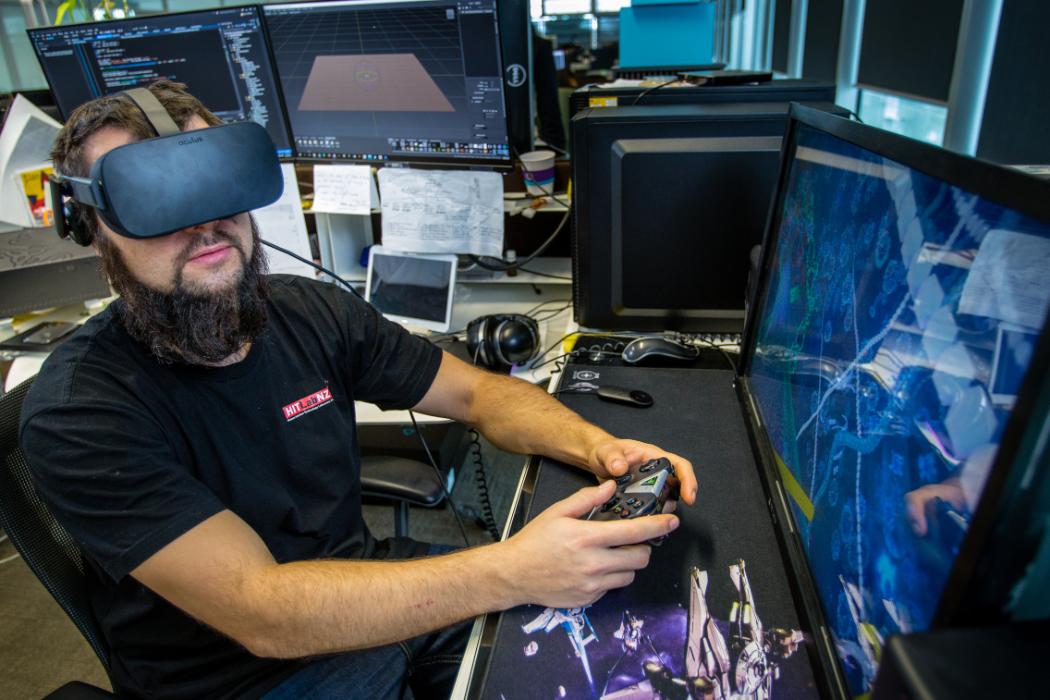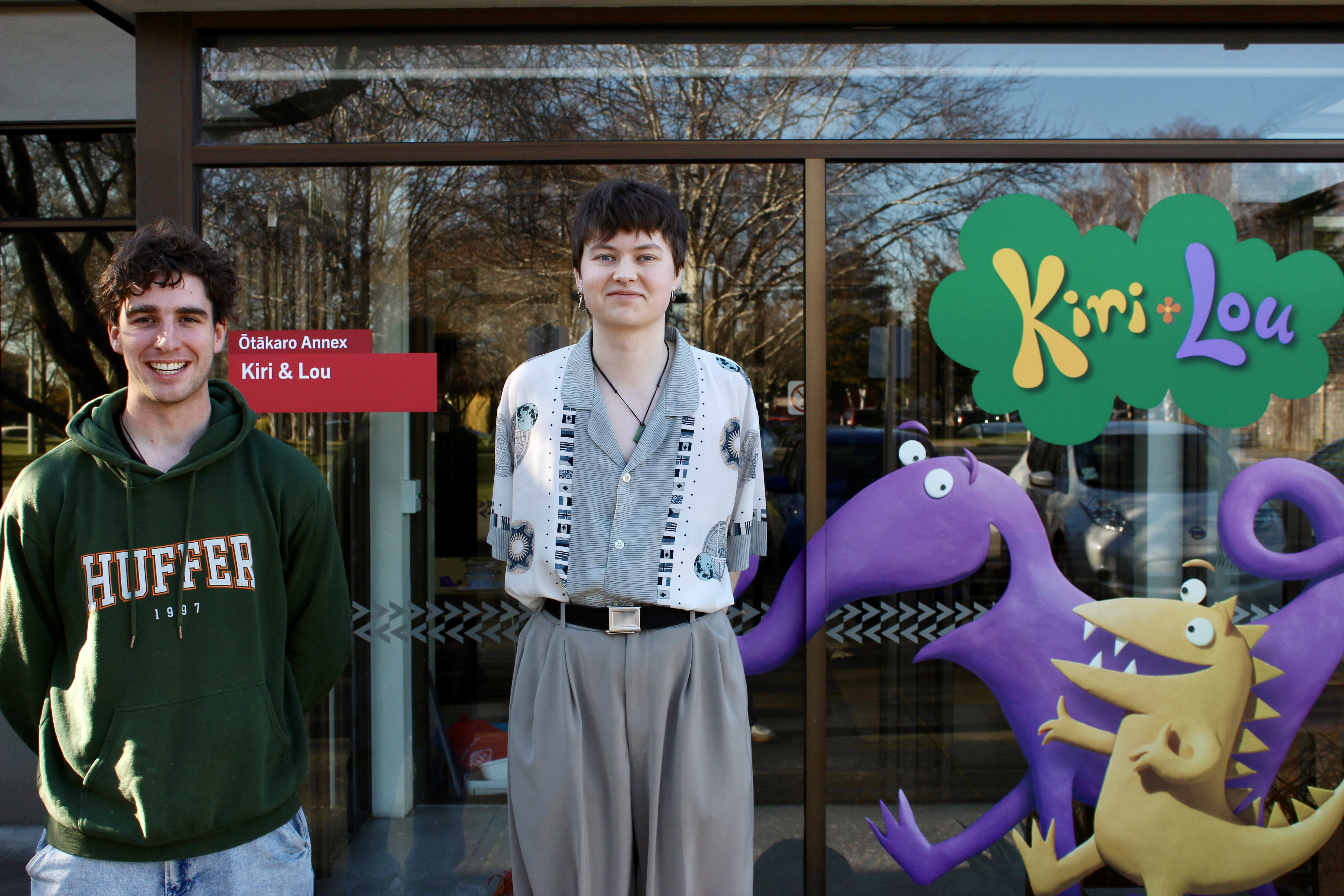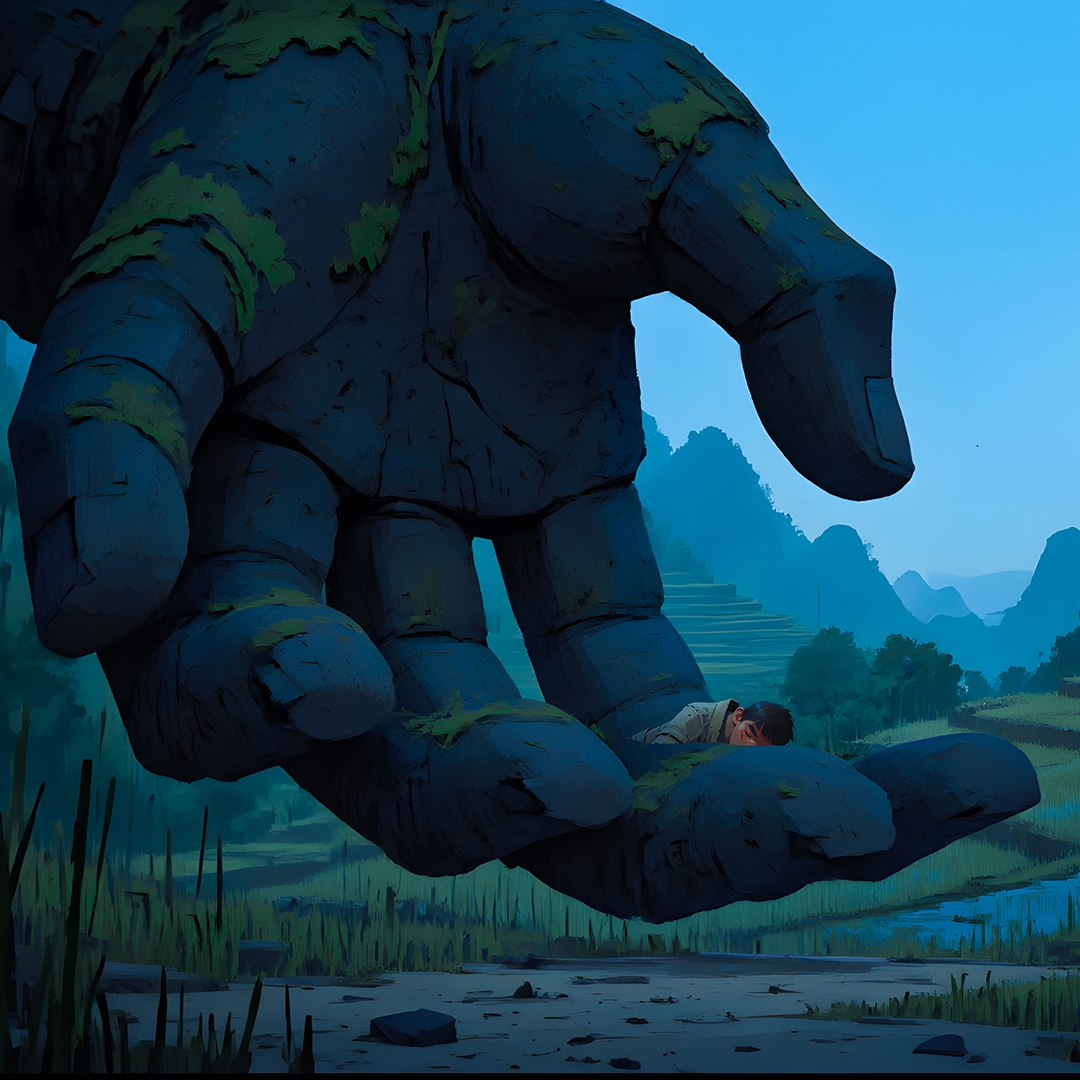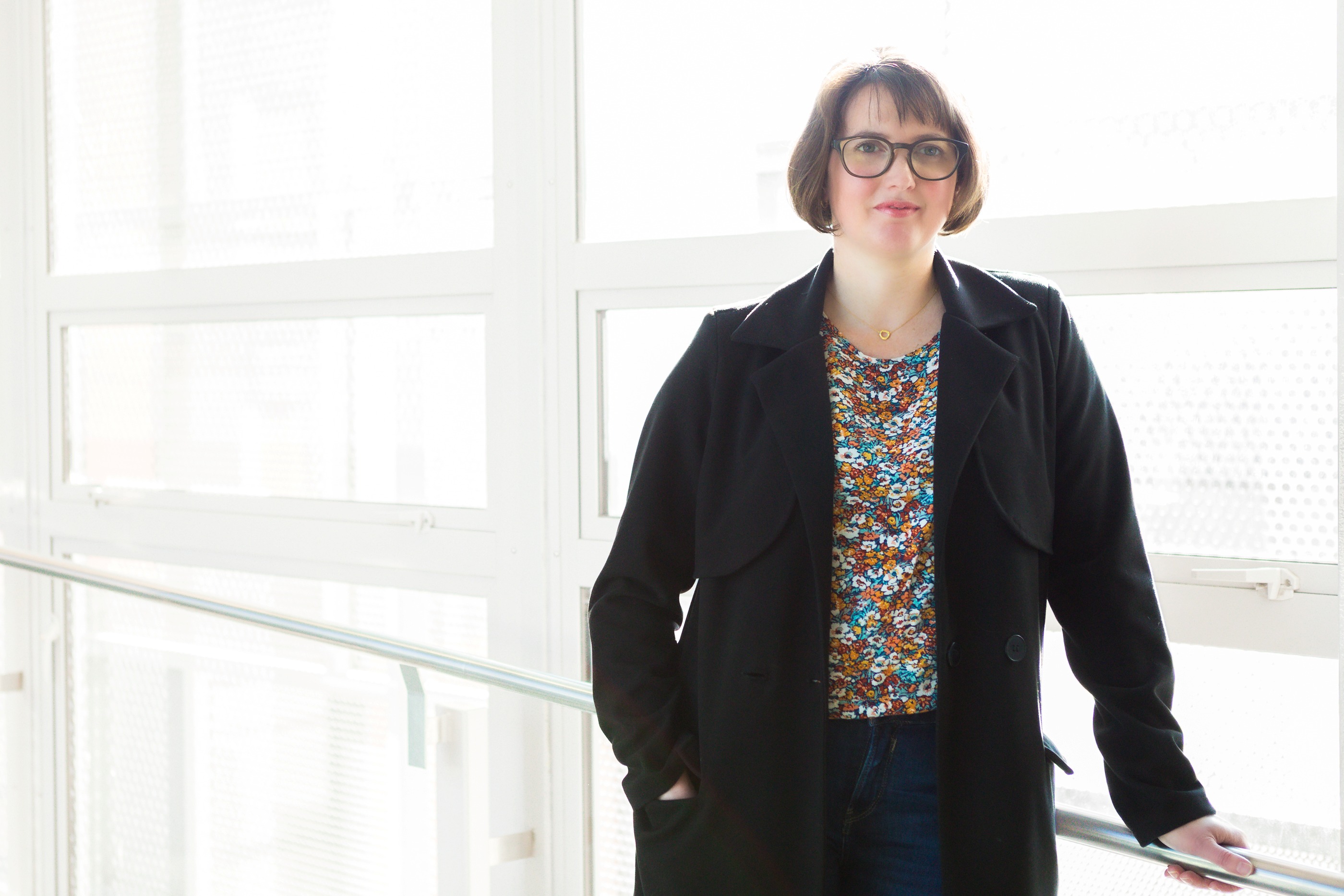The University of Canterbury (UC) Deputy Vice-Chancellor Professor Ian Wright has welcomed the initiative, and thanked the Minister of Education Chris Hipkins for his support.
“This continues UC’s record of developing world-class research and being part of the transition into nurturing and developing new innovations and business. Crucially, this joint TEC-UC investment will further enhance the emerging technology sector in Christchurch and New Zealand, based around immersive gaming technologies,” Professor Wright says.
This research uses the motivation that games provide to engage people in carrying out tasks that might otherwise be boring or difficult, such as learning at school, exercising or quitting smoking. It includes virtual reality, augmented reality, and social and artistic aspects, merging digital content with an otherwise physical world.
The project, part of the Tertiary Education Commission’s Entrepreneurial Universities programme, will bring three international entrepreneurial academics to the Human Interface Technology Lab New Zealand (HIT Lab NZ) at UC to break new ground on effective use of these novel technologies.
Director of the HIT Lab NZ, UC Professor Rob Lindeman is leading the initiative.
“This is an exciting development for the University of Canterbury and the whole of New Zealand,” Professor Lindeman says. “This type of immersive gaming is used in training and education, as well as for remote collaborative activities using this technology. It’s proven to be useful in rescue situations and other health-and-safety scenarios.”
Developing innovative immersive gaming applications has a role in improving personal and social educational and health-related outcomes, he says.
“It’s also used in entertainment games, and this industry is an increasingly important contributor to the New Zealand economy. By supporting technical innovation research through this project, we can help address the skills shortage in New Zealand’s growing and lucrative gaming industry.”
The academics will be working mainly with postgraduate students in the HIT Lab NZ, an international, multidisciplinary research lab, which delivers postgraduate degrees from ground-breaking research at UC. In addition, they will help with the new UC School of Product Design, which offers a Bachelor’s degree majoring in Applied Immersive Game Design. The academics will also work closely with the UC Centre for Entrepreneurship.
The grant will support three PhD students and a postdoctoral researcher, as well as a game artist to help create content. The effort will create a pathway to commercialise student and staff projects in applied games created as part of the initiative.
Head of UC’s School of Product Design, Prof Conan Fee says: “The depth of knowledge these world-leading experts bring will provide real-world and teaching experience of enormous value to our Applied Immersive Game Design students in the School of Product Design.”
Christchurch tech organisations welcome the news
Richard Sandford, General Manager, Innovation and Business Growth, ChristchurchNZ, says: “As a major supporter of HIT Lab NZ, ChristchurchNZ was pleased they were able to attract such high quality talent through the support of the Tertiary Education Commission. The cutting edge innovation being done at the Lab is a prime example of Christchurch’s market-leading tech sector, both in education and commercialisation. ChristchurchNZ are dedicated to developing and attracting talent in our city – we see this as critical to our economic development and future employment opportunities. We see this as an important step in educating the next generation of entrepreneurs, and helping them make an impact on the world stage, from right here in Christchurch, New Zealand.”
James Tan, Director of Digital Confectioners, a Christchurch game studio, says: “As a leading Christchurch-based game development company, Digital Confectioners is always searching for creative and innovative talent to help grow our international business. I believe that this initiative will help produce and promote those vital, locally developed innovators who are so integral to our business.”
Nadia Thorne, General Manager at Christchurch game studio CerebralFix says: “We are really excited about the fantastic team that UC and the HIT Lab NZ are bringing together. We appreciate how closely they’ve worked with industry to understand the challenges we're facing and their programme not only addresses our current knowledge gaps but also inspires an approach to innovation that we need to stay at on the cutting edge of technology.”
Research team background
UC reached globally to build a team of experts with strong research and entrepreneurial profiles in the fields of immersive technologies and applied gaming. The core of the team is made up of the wife and husband team of Dr Heide Lukosch and Dr Stephan Lukosch, both from Delft University of Technology (TU Delft), the Netherlands, and Professor Andrew Phelps, from the Rochester Institute of Technology (RIT) in the United States. Current UC staff members HIT Lab NZ Director Professor Lindeman, Dr Simon Hoermann and Dr Thammathip Piumsomboon from the UC School of Product Design, are the other members of the team.
Both Drs Lukosch have strong ties to European academic, government, and commercial partners, while Prof Phelps brings long-standing connections to the US academic, government and industry gaming communities. Between them, this “dream team” will bring 50 years of expertise to developing applied immersive gaming in New Zealand.
Dr Heide Lukosch is head of the TU Delft Gamelab. Her entrepreneurial activities span from guiding students into the Dutch games industry, to collaborating with game development companies in Europe, to supporting other businesses with game-based technologies. This strong entrepreneurial attitude has led to a powerful network of game researchers and developers that are able to take over game related projects with varying scope, size, and approaches, tailored to the needs of the target group and problem owners. Regular collaboration takes place with companies founded by former students from across TU Delft and the Gamelab.
Dr Stephan Lukosch has 12+ years of experience doing research in mixed reality and applied gaming. In his research projects, Dr Lukosch explores the effect of mixed reality and applied gaming in various scenarios in the vertical markets AIGI is addressing. All of his recent research projects have been conducted together with Dutch or European companies or organisations addressing business or societal problems. These partners have contributed to the research projects either in-cash or in-kind to address the identified problems with novel, academically proven solutions.
Prof Andy Phelps is the founder of the RIT Center for Media, Arts, Games, Interaction & Creativity (MAGIC), and the associated MAGIC Spell Studios, a public-private cooperative model that links together academic research with commercial production. Through the MAGIC Center, Prof Phelps has ably combined art and science, media creation and media study, and STEM and humanities to support multi-disciplinary teams to solve real problems. Prof Phelps is currently serving as president of the Higher Education Video Game Alliance (HEVGA: hevga.org), which is the leading international organisation dedicated to the promotion of video games as a discipline. As president of HEVGA, he will allow UC to tap into the strength of this organisation in promoting the widespread positive uses of gaming technology.




%20resized.JPG)


.jpg)



